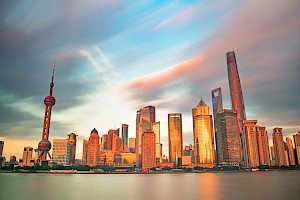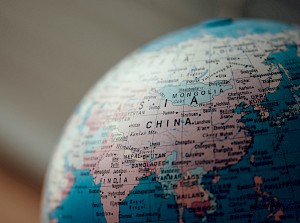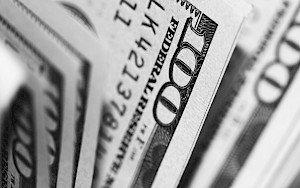‘One wonders if America is a nation in decline.’ Can it still be fixed?
September 14, 2022Originally published in The Toronto Star on September 7, 2022 as contributing columnist
“A great civilization is not conquered from without until it has destroyed itself from within.”
-Ariel Durant
I am finding it increasingly difficult to scroll through most U.S. news platforms without feeling thoroughly exhausted. The political divide is deepening and the vitriol in the rhetoric is reaching toxic levels. Almost everyone, regardless of political affiliation, is either angry or depressed. I can’t help but feel that America is resting on a dam that’s about to burst. I have always had a great fondness for the American system, as it once existed. I have built a business in the U.S. and some of my dearest friends are Americans, making the current environment heartbreaking to watch.
One wonders if America is a nation in decline. As famed investor Ray Dalio points out in his bestselling book, “A Changing World Order,” throughout history nations go through a cycle of rise and fall. A nation’s rise is marked by technological innovation, good education, creativity, and a rising standard of living. But nations eventually mature. As people get used to the good times, they increasingly bet on the prosperity continuing, and they increasingly borrow money to do that, which eventually leads to a bubble. As the prosperity increases, the wealth gap grows. Eventually the debt bubble bursts, which leads to the printing of money and credit and increased internal conflict. Eventually, some sort of wealth redistribution revolution occurs that can be peaceful but is often violent.
The 2008 financial crisis was the turning point. The first truly major bubble to pop, but certainly not the last. Inequality was already on the rise prior to the crisis but grew exponentially in the past decade. This wealth gap is what helped foster the current era of discontent.
How things evolve from here is anyone’s guess, but if history is correct, it won’t be pretty. I doubt there exists a simple one-fix to America’s woes, but I have four suggestions that offer an obvious place to start.
1. Take the money out of politics
In the 2010 U.S. Supreme Court case, Citizens United vs Federal Election Commission, the court struck down caps on “independent” spending by corporations, wealthy individuals and unions. Limits on the size of contributions to groups that support candidates went through the roof. In the U.S., one per cent of donors contribute 90 per cent of money candidates receive.
In the decade since their creation, Super PAC spending has trended sharply upward, having spent almost $3 billion ( U.S.) on federal elections. Furthermore, political spending in the 2020 election totalled a staggering $14.4 billion, more than doubling the total cost of the record-breaking 2016 presidential election cycle. (In contrast, Canadian political parties raised a mere $30 million during the last federal election.) That is an obscene amount of money to spend on an election and virtually ensures that wealthy and powerful groups can buy all the politicians they need to protect their interests.
To make matters worse, the source for much of these donations is now hidden behind anonymity, shell companies and shadowy political groups. America is long overdue for an overhaul of its political disclosure laws and reversing the Citizens United ruling is probably the most urgent fix needed.
Adding to the problem of money in politics, consider that there are approximately 12,000 lobbyists in DC representing primarily corporate and foreign interests. In 2021, the total lobbying spending in the United States amounted to $3.73 billion. Lobbyists ensure that legislation works in their favour and there is plenty of evidence the results are not always in the best interests of the general public.
In 2020, the pharmaceuticals and health products industry in the United States spent the most on lobbying efforts, totalling to about $357.85 million. It’s no wonder the American health-care system is one of the worst in the developed world. The U.S. spends more on health care as a share of the economy — nearly twice as much as the average OECD (Organization for Economic Cooperation and Development) country — yet has the lowest life expectancy among the 11 nations.
The United States spent $754 billion on national defence during fiscal year 2021, which amounted to 11 per cent of federal spending, more than the next nine countries combined. And guess what? The defence industry spends approximately $120 million per year on lobbying in Washington. It’s no wonder the U.S. is mired in forever wars.
The same can be said of many other industry groups, including fossil fuel industry. The five largest oil and gas companies alone spend about $200 million a year on lobbying to control, delay, or block binding climate policy. Severely curtailing the lobbying industry and reversing Citizens United would help direct funding to where it is truly needed, as both of these phenomena are exacerbating the gap between rich and poor.
2. Eliminate the infinite election cycle
There is a tacit understanding in politics: Say what you must say to get elected and then govern within the constraints of the real world. Promises made don’t always match up with their delivery. With presidential elections every four years and congressional elections every two years, politicians are in campaign mode 365 days a year. The 24-hour cable news cycle ensures the public gets inundated with every moment of the campaign process, from pre-primary jockeying right through to the post-mortem of election night. How can anyone govern responsibly — and make difficult, informed decisions — while endlessly fundraising and always running for re-election?
The U.S. doesn’t have an official campaign season. As an example, Ted Cruz announced his presidential candidacy 596 days before election day. Meanwhile, a typical Canadian campaign lasts about 11 weeks. To the south, a Mexican general election campaigns start 90 days before election day. The simple solution is to incorporate laws dictating the duration of campaign periods, as many countries do. As an additional benefit, shortening the campaigning period would also go a long way in reducing the gargantuan amounts of monies that are needed to run.
3. A 15 per cent flat tax for everyone
In 2018, the year Trump’s Tax Cuts and Jobs Act (TCJA) went into effect, 91 of the top Fortune 500 companies paid zero federal tax. On the list were corporate giants such as Starbucks, Amazon, IBM, and Netflix. Worse still, 26 companies that booked a combined $77 billion in profits not only paid zero tax, but received rebates that totalled almost $5 billion, creating an effective negative tax rate. This is in no way a recent phenomenon. From 2008 to 2015, 100 large U.S. corporations avoided paying any federal tax in at least one year, while their combined pre-tax income totalled $336 billion. How is that fair to the average working stiff? He pays his taxes because he can’t afford the expensive tax lawyers and accountants that manage to find loopholes, no matter what the rules say?
Enter the idea of a flat tax. Simply put, everyone pays one flat rate — say 15 or 20 per cent — on all income earned. No deductions, credits, exemptions, rebates, or any other loophole. It’s simple — if you earn, you pay. A level playing field for everyone and a lot less resentment of the so-called elites.
4. Reform the federal reserve
The Fed’s policies over the past two decades have created the worst debt bubble in history, the worst inequality in the developed world, and more recently, punishingly high inflation. Gone are the days of Paul Volcker, when the Fed was truly independent of government. Since Alan Greenspan’s tenure as chair, the Fed has evolved into nothing but a government-backed cartel that only protects the interests of Wall Street. They have been consistently wrong for the past 20 years, which would lead one to believe they are incompetent at best or worse, knowingly complicit. Personally, I lean toward the latter.
How to fix the Fed problem is a difficult one to solve. There is a general misconception that the Fed is part of government. It isn’t. It’s a bunch of bankers that have a legal monopoly to control money which is granted to them by government. I would suggest nationalizing the Fed, but I am not sure government would be more competent or make monetary decisions that were not politically motivated. What is truly needed is a monetary system that has some form of hard money discipline. Going back to a gold standard (or some other commodity-backed system) would prevent the Fed from creating the mess we see today.
There are other culprits in the current system that deserve a dishonourable mention, but space does not allow me to discuss in detail. So I’ll be brief.
Americans would benefit by eliminating Section 230 of the, uniquely American, Communications Decency Act which effectively protects Social Media companies from lawsuits as the purveyors of the misinformation and disinformation that is causing grave damage to the nation’s social fabric.
Lastly, stricter gun laws are badly needed. There is no plausible reason why weapons designed for the battlefield should be readily available to the public. I am not sure how many mass shootings it will take, especially of schoolchildren, for lawmakers to muster the courage to address this.
So, there you have it. A handful of solutions to glaring injustices and flawed thinking. Fixing some, if not all these issues should be common sense. But don’t hold your breath, as none of it will ever happen. Constitutional constraints make it difficult to change the election cycle. More importantly, money is a powerful force in the U.S. and unfettered pursuit of the almighty dollar is deeply entrenched in American culture.
Ironically, this belief system resides even with the many who are impoverished by it. The dogmatic worship of “free speech” and “the right to bear arms” are simplistic beliefs that stand in the way of addressing some of these ills by employing common sense. America might not be completely broken, but its current form of capitalism needs a serious overhaul. According to a recent survey, 40 per cent of Americans believe a civil war is at least somewhat possible in the next 10 years. If that’s not a wake-up call, I don’t know what is.










